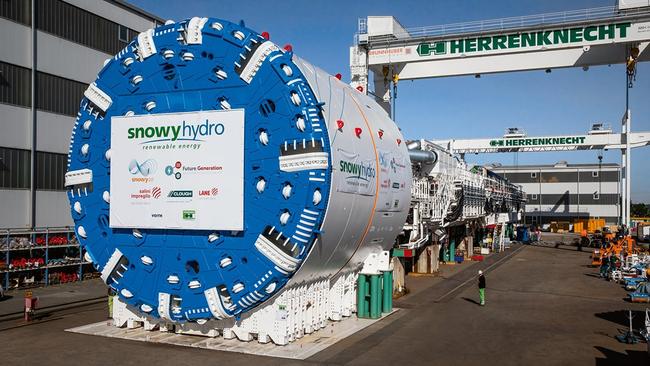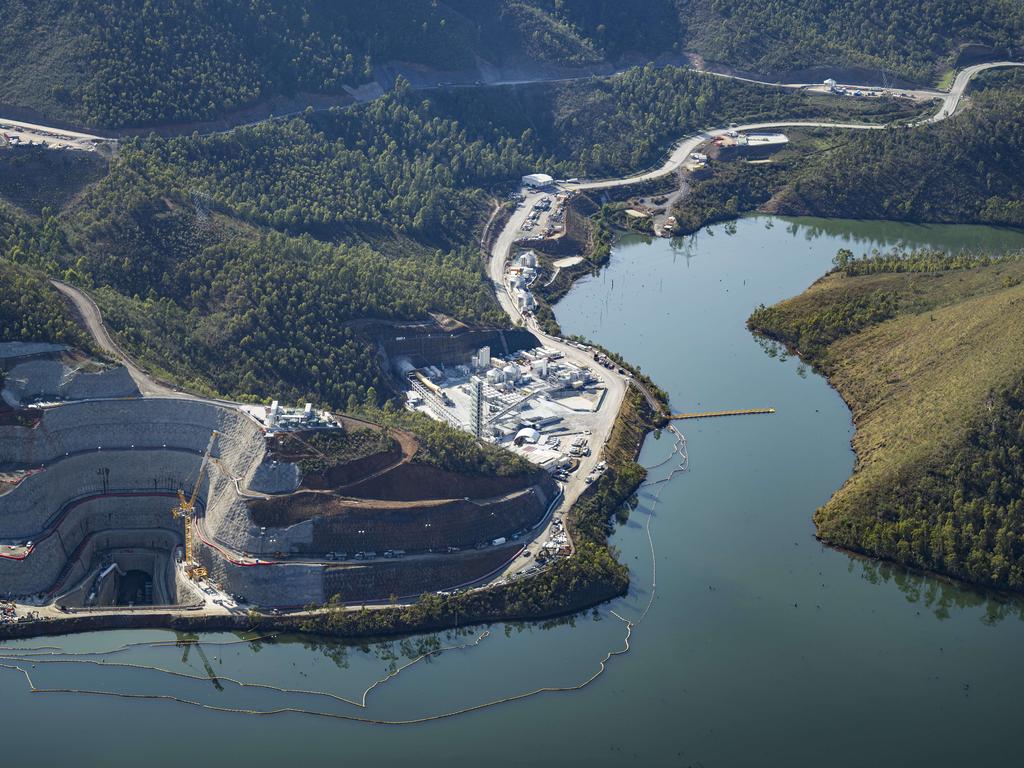Snowy 2.0 workers want to be paid for travel to and from work
Fly-in fly-out workers want to be paid when travelling to work and when returning home.

Unions are pressing for fly-in fly-out workers on the trouble plagued Snowy 2.0 project to be paid for travel to and from work, including employees travelling between NSW and Western Australia.
As unions and contractor – prepare for a Fair Work conciliation conference on Friday, The Australian can reveal new details of the claims by unions which are threatening industrial action on the $12bn project. Documents show the unions want “all travel to and from the project to be treated as paid work time”.
Webuild has told the unions that it would not support the claim.
“We continue to look at options to get employees home as quickly as we can,” it says in a written response to the unions’ bargaining representatives.
Australian Workers Union NSW secretary Tony Callinan told The Australian that the length of travel time to and from the project was a “significant issue” for the workers who will vote on industrial action in coming weeks.
“They work a 12-hour shift and then get on a bus to go for an hour and a half down to Cooma, then they get on a plane to the closest capital city from where they live, then they’ve got to get home. This might include workers from Western Australia,” he said.
“In some cases it’s as much as 26 to 27, 28 hours from the time they get out of bed until they’re home.
“The travel in and out is a significant issue for the employees on site – fatigue management and a whole lot of other things comes into play.”
Mr Callinan said the workers were unhappy with the facilities at the airport at Cooma and wanted to be flown in and out of Canberra airport, a further claim that Webuild is resisting.
“Cooma airport is insufficient. It doesn’t have enough amenities. When their flights are delayed, they are pretty much stuck in the middle of a paddock with no amenities while they’re waiting,” Mr Callinan said.
The Fair Work conference follows the granting of a protected action ballot order. Under the law, the commission must order a mandatory conciliation conference for all bargaining representatives, with the aim of facilitating agreement on unresolved issues before any industrial action is taken.
The employees, who earn more than $200,000 annually on the government-owned hydro project, are seeking significant upfront and annual pay rises, 15 per cent superannuation, better food, triple time on public holidays; higher overtime and an increased “productivity” allowance.
Having rejected a 23 per cent pay rise offer over four years, the AWU is pushing for an upfront payment to bring workers into line with tunnel wage rates in Melbourne where an entry-level tunneller can be paid $230,000 annually and more experienced tunnellers earn more than $300,000 a year, followed by 6 per cent annual pay rises.
Unions are also seeking a raft of better entitlements including two “mental health” days off each year; more cleaning staff; a $140-a-day camp allowance, $30-a-week mobile phone allowance; accrued sick leave paid out at the end of employment; updated parental leave; a same job same pay clause; allowances for union delegates and double time for working in the rain.
Webuild has rejected many of the union claims but agreed to increases in overtime rates and night shift penalties; greater flexibility for banking of rostered days off; cashing out of annual leave; higher workers compensation and top-up insurance, sickness and accident cover; more airport options; a labour hire clause; and increases in allowances albeit smaller than those sought by unions.







To join the conversation, please log in. Don't have an account? Register
Join the conversation, you are commenting as Logout